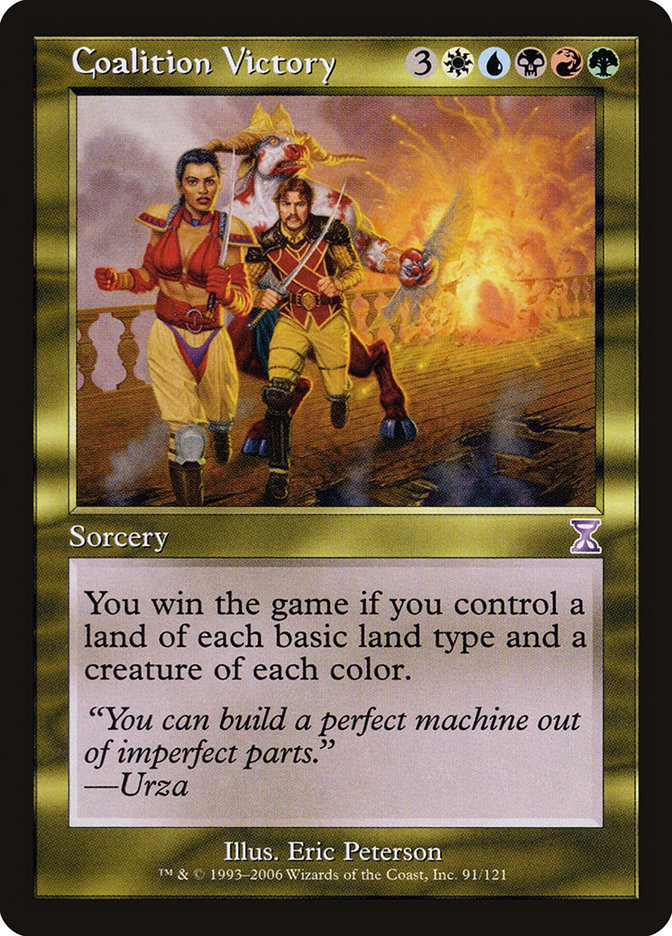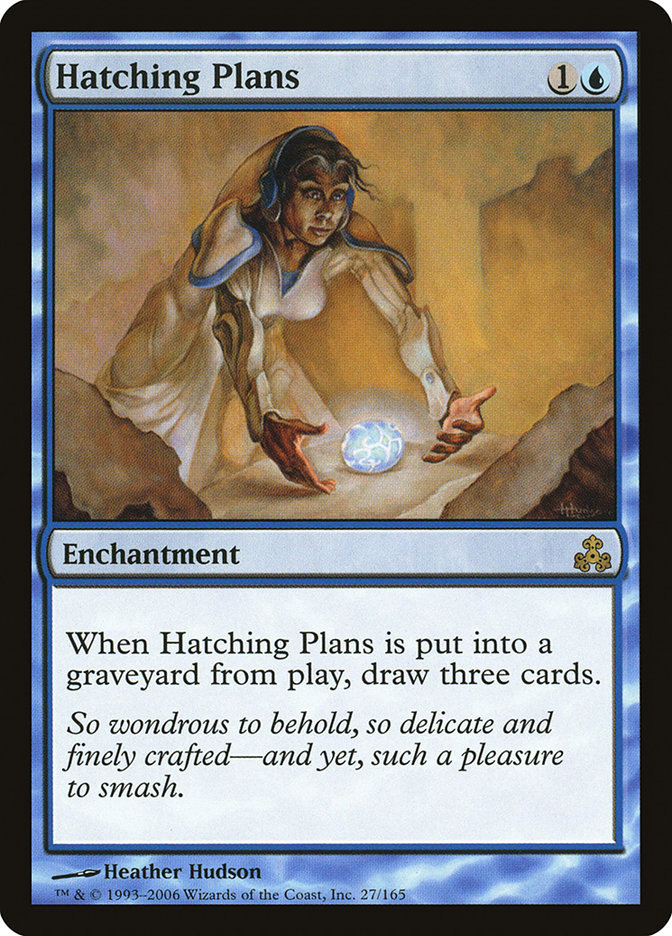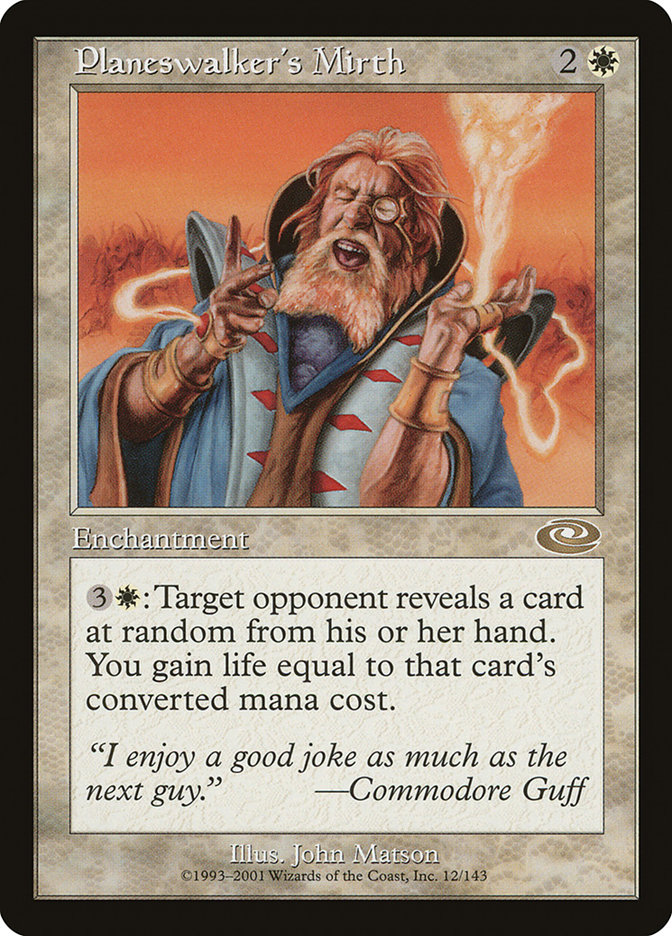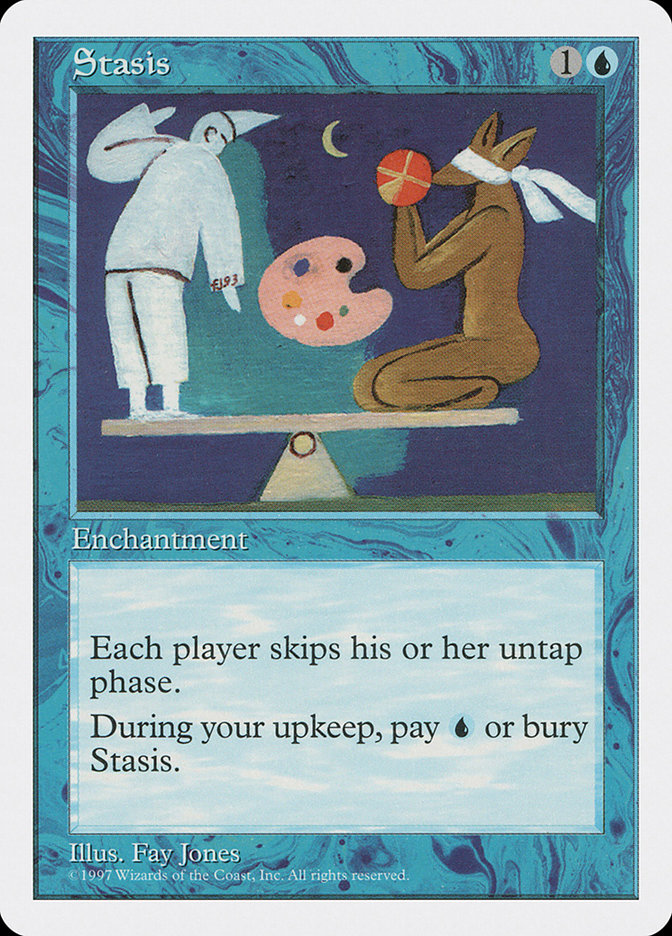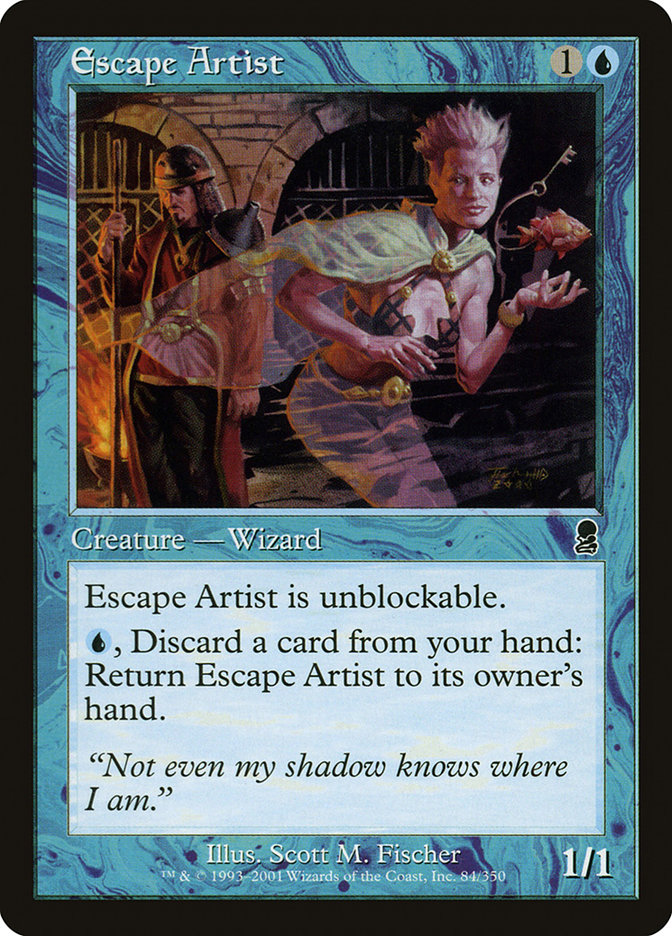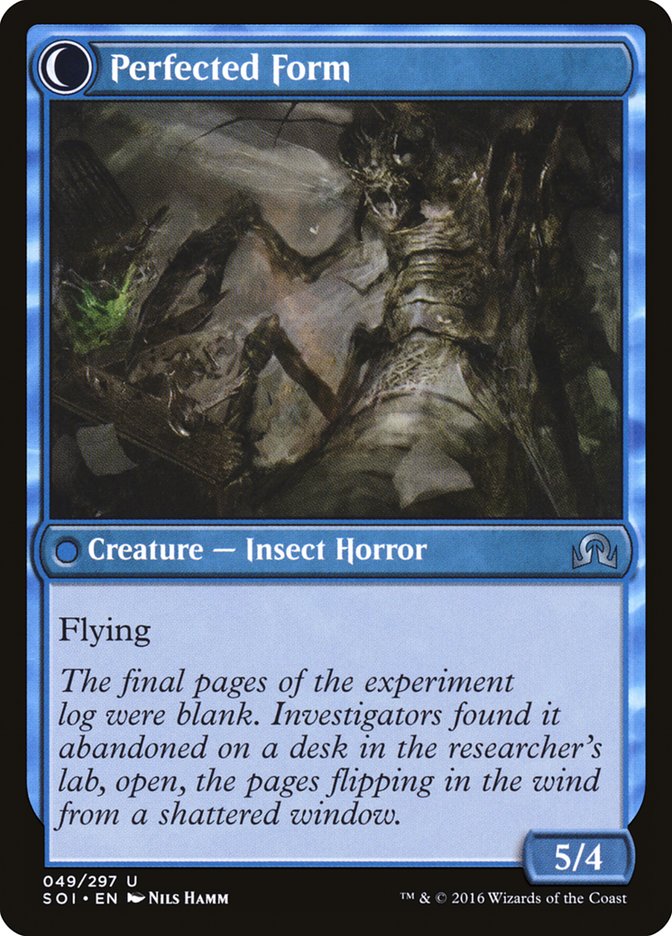Deck selection is why Magic is regarded as the greatest game to anyone who’s ever come in contact with it. The immeasurable variety provided by these choices is practically transcendent when compared to other games, and most likely the main reason why Magic’s retention rate is unparalleled. From kitchen tables to award ceremonies, deck selection has helped create a robust metagame so vast that anybody can find a sense of community within the fold. To put it in layman’s terms, deck selection is the LeBron Jordan of game design theory, a home run, hole in one, and a pick-six all combined into a momentous buzzer-beater play. It’s just that good.
Yet within all good storytelling, a conflict needs to arise. Our intangible protagonist is not left lacking the yin to its yang. An unbalancing has occurred, but one that’s invisible to the naked eye. It’s slowly seeped into our community without witness or warning, its relevancy even so subjective that many may not even deem it a threat.
“The greatest trick the devil ever pulled was convincing the world that he doesn’t exist.”
What if I were to tell you that the importance of deck selection has begun eroding away? Would you even believe me? Surely I must be wrong, given the fact that most of you probably clicked on this article hoping to see new decks showcasing Wizards of the Coast’s next set, Aether Revolt. How could I, a content producer who’s made a career off designing decks, even think that?
Trust me when I say it didn’t just pop into my head one day. It’s taken me some time to formulate the idea, but once hatched, this thought couldn’t be simply dismantled and ignored. It needed to be explored.
Test of Time Devaluation
I started my journey by reevaluating something that always seemed to bother me, but I never could put my finger on exactly why. Each and every year we turn the spotlight on potential Magic Hall of Famecandidates while we dissect their careers for potential induction. Number of Top 8s, win percentages, peer recognition, and community contributions all get factored in, but rarely exposed is the ability to correctly identify winning strategies before the fact unless the aforementioned player is recognized as a highly functioning deck designer.
So what gives? Is deck selection actually important, or are we just not critical enough retrospectively analyzing these decisions?
I always just assumed it was the latter. Going back and analyzing ten-plus years of deck decisions would not only be extremely tedious, but coverage has never kept any documentation on failure, making it impossible to do this even if we were willing. The other metrics we actually use all stand the test of time, while deck selection loses its relevancy. It makes perfect sense why we don’t value deck selection when it pertains to the Magic Hall of Fame.
What about a closer look at our reigning Pro Tour Player of the Year and the undisputed best player in the world? Anyone who knows anything will say Owen Turtenwald is, and has been for some time, the best in the business. His technical game is unparalleled, as is his dedication to perpetuating his already lengthy dominance. Without a doubt a slam dunk for the Magic Hall of Fame!
There was just one flaw in his armor, an Achilles heel so to speak, but it wasn’t brought up when the microscopes got pointed in his direction, even when a majority of his accomplishments have come in recent years. He was praised for all of his greatest strengths, but the only potential argument that could be used against him was drastically ignored.
I’m guessing you can figure out what that was.
His deck selections can sometimes be so horrendous even he makes fun of them! One would think he would have mastered this, just like he has every other aspect of the game, but more shockingly, no one has seemed to even notice this flaw. That, or they just don’t seem to care.
Poor deck selection isn’t isolated to just Owen. Everyone chooses bad decks. At what rate is difficult to quantify, but showcasing that even the best player in the world has an issue with this is vital to this topic, especially when this aspect of the game isn’t even prioritized as a skillset worth discussing when deciding who achieves the greatest accomplishment in the game or not.
In fact, the only times bad deck choices actually come up in conversation are when players make light-hearted jabs at one another or even themselves, but never to learn from them. Telling someone they made the wrong play can roll off one’s shoulder, but calling out their poor deck choices in a serious manner could come off almost villainous. It doesn’t make sense! To begin understanding this phenomenon it’s important to first figure out whether poor deck selection is something we have difficulty recognizing, or if it’s universally perceived as inconsequential compared to all the other challenging aspects of the game.
Economical Devaluation
The investigation for clarity begins with potentially the biggest indicator on the subject matter: coverage. There’s currently an abundance of tournaments with coverage teams dedicated to keeping spectators up to date as events unfold. They work hard to keep you informed and entertained, but this can only be achieved through some level of fanciful journalism.
If you pay close attention to any current coverage model, you will notice that the early rounds of any given event prioritize new and exciting ideas, as opposed to the “normal” decks we’ve become accustomed to through the previous weeks. Odds are, these exciting new decks will get weeded out as the tournament progresses, making them high priorities for early spotlight. Even if they don’t fail, the risk of repetitive feature matches in the later rounds is too high to ignore them for that long. It’s safe to start fresh when things often end stale.
More often than not, these “brews” don’t get the job done. All that initial hopefulness can’t change the fact that midnight has come, and these once-beautiful carriages turn into moldy pumpkins. One would think this would be remembered by the masses, given the initial level of enthusiasm and optimism portrayed by the designer, but it never is.
Well, not in any seriously detrimental way.
A player may find themselves on the front page of r/magicTCG for a game-losing punt, but a peep is rarely heard about a failed attempt at a called-shot new strategy. It sounds utterly irrational on the surface, but that couldn’t be further from the truth. It’s in fact the most logical way all parties could and should approach poor deck choices from a media standpoint. Let’s break it down.
For starters, creativity is overly glorified in Magic-related productions. Even if the top X decks in a given format are enjoyable to play against each other, that doesn’t always translate to watching them, especially without perfect information for players to follow along with bettering their understanding of their beloved Pros’ play patterns. Oversaturation of the top decks becomes repetitive over time, and viewers become restless for something new to break from the norm. New doesn’t have to be better than good when good’s become monotonous.
Another major factor is the value we put on later rounds of an event. As the tournament progresses, tensions begin to rise as players get closer to Top 8 births. This irrational distraction of inflated importance causes those early-round brews to get pushed out of the short-term memory. Now lacking relevancy, they get forgotten without any additional reminders.
Those alerts rarely happen, given coverage doesn’t want to shine a light on failure when success is what sells. Not just that, but patrons of the game don’t want to read articles or watch videos of perceived or known bad strategies in the following weeks. It’s now become a waste of their time in a journey to succeed. They, along with everyone else, just want the bad deck choices to be forgotten so that the process can begin again in the attempt to actually find that which challenges the status quo. Bad deck choices aren’t criticized; they’re purposely ignored!
This explains why deck designers are effectively the rockstars of Magic-related content. They’re the ones on the front lines trying to break strategies wide open in an attempt to exploit stagnant formats. They’re the ones “sacrificing” their own win percentage in an exploration for worthy inventions.
What they do for the game is extremely beneficial for all parties involved. This line of work initially creates exciting new content for people to intake, thus stimulating the MTG economy by creating a demand previously non-existent, which finally fills empty seats at events.
Deck selection is in fact the only aspect of competitive Magic that’s directly connected to the MTG economy. The work done by these individuals benefits multiple demographics within our community, consumers as well as distributors. It’s obvious why we don’t want to punish this line of behavior, but instead embrace it. After all, it’s a net positive for all parties involved!
Well, except if you’re the one losing all the matches. Even winning with poor deck choices tends to end in high praise!
From an external standpoint, it seems that we don’t judge each other on deck selection as critically as we do on other aspects of the game, even though coverage often portrays it as the most important skillset in Magic. Coincidently, deck selection’s the most prioritized aspect of the game when the scope is pointed inward as well. At least it looks to be on the surface.
Subjective Devaluation
Content consumers as well as producers alike invest a reasonable amount of time and effort into figuring out the best deck choice for any given event they play in. This can be observed through the articles they read and write, comments they make on social media, and the conversations they have in social settings with like-minded individuals.
Clearly other aspects of the game are also in play, but for the most part players are focused on selecting the best possible deck each time they register for an event they’ve prepared for.
There’s just one hitch. Most are preparing incorrectly, and they willingly do so.
Many view deck selection as a linear process using an internalized rudimentary understanding of the scientific method for the basis of preparation. Results from the previous events come in to be observed. A hypothesis is made, which in our case means potential decks are chosen, and then experiments begin. If the results of those experiments come back flawed, then a new hypothesis is made. Rinse and repeat until the results match the last hypothesis. Thus the process is complete.
Now, this process is flawed in a variety of ways, and we will get to all of them in due time, but for today’s purposes we’ll just be focusing on one of them specifically: an error in the general understanding of how the functionality of the method for testing should work.
The process for deck selection isn’t linear, but in fact cyclical. This meaning the process does not simply begin with the observation of the last event’s results. The process itself should be scrutinized as harshly as the deck choices themselves. Constant and never-ending attempts to perfect the process will only strengthen future theories.
A single flaw in the process can skew sought-after results, but those flaws need to be identified first to make the appropriate changes. A period of time to analyze the previous process should be prioritized over initiating the next event’s preparation.
This is normally understood, yet still ignored. A disconnect occurs, and normally smart people decide to willingly do dumb things.
In this case, that’s ignoring a potential problem that could be fixed. Instead of putting in the extra mile, many choose to devalue the relevancy of previous deck selections by blaming likely internal issues on external forces.
The usual culprit for this lack of reflection is an investment of self-worth into the game. An emotional bias is formed to protect the player’s ego from failure, and the degradation of potential peak performance unknowingly begins. Bad habits start to form, but their effects are almost indistinguishable from external forces like negative variance. All of a sudden, the negligent decision not to self-reflect has snowballed into an inability to do so, a wrong incapable of being righted until a certain failure threshold is reached.
A failure threshold is the amount of times one must fail before a change in procedure is attempted. A low failure threshold is found in those who are constantly trying different things to find the desired result, while a high failure threshold is effectively an institutionalized form of insanity. Those who’ve lost the ability to look inward for solutions usually also increase their failure threshold.
Players with a high failure threshold are extremely sensitive to deck selection-based criticisms. In all honesty, most players are sensitive when it comes to deck selection, but we will get into that more next week. People don’t want their critical thinking abilities attacked or hard work invalidated.
Just like with most arguments, a contradictory opinion will trigger a defense mechanism solidifying the opposition’s viewpoint. Those without enough time to properly prepare will use that as an excuse. Some who don’t want to or can’t invest in the more expensive cards will cry wolf in this department. Those who don’t want to play “the” deck of the format will speak of irrational fears of being behind the curve. Others emotionally invested in their pet ideas will use variance as the reason for poor performances.
It’s all the same. Those unwilling to change will justify their stubbornness.
Deck selection’s importance is so devalued that any reason, objective or not, can be easily justified with little backlash.
Deck selection isn’t black or white, right or wrong. It’s an entanglement of variables often causing diminishing relevancy. Today’s purpose was to shine a light on just that. We discovered that, even though deck selection is relevant, the importance of learning from our mistakes hasn’t received the same recognition.
Next week, we’ll explore this subject even more deeply as we identify how bad deck selection happens, why it’s difficult to be objective, and how we can stop this degradation to become the best Magic players we can be.


